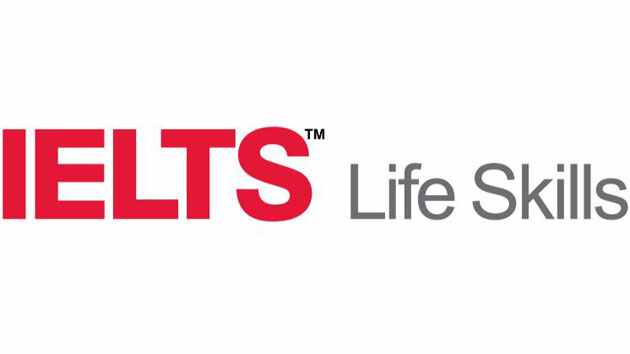One of the rapidly evolving fields is healthcare. To deliver top-notch patient care, it’s very important to stay up to date with the newest breakthroughs and established methods. How can this be done?
Continuing education plays a major role in the professional growth of healthcare practitioners. It enables them to remain up to date with new developments in medical techniques, technology, and procedures.
Ongoing education is not just an obligation for those who are working in the healthcare field. Healthcare professionals must continually learn in order to progress professionally, enhance patient care, and develop personally.
There are multiple advantages of additional education in this sector. Let's examine these benefits in more detail so that you may understand their full relevance.
Staying Updated with Medical Advances
The medical world is constantly evolving, with new research, technologies, and treatments emerging all the time. It is imperative that healthcare practitioners stay abreast of these developments. By continuing their education, practitioners may give their patients the newest and finest care available.
Did you know that medical research frequently brings new discoveries and innovations that significantly impact patient care? Examples include new medications, treatment protocols, and surgical techniques, which are constantly being developed and improved.
Healthcare professionals who are dedicated to ongoing education can integrate these updates into their practice. This not only improves their ability to treat patients more effectively but also helps them stay competitive in their field.
Enhancing Professional Skills and Competence
Professionals can develop their abilities and skill sets by pursuing continuous education. How? Individuals have the chance to learn new things, expand their knowledge, and acquire new skills.
For instance, post graduate NP certificate programs offer specialized training that can significantly enhance a nurse practitioner's expertise and career prospects. These programs help healthcare professionals focus on certain areas of interest, whether it is acute care, pediatrics, or family medicine. Earning additional certifications will broaden their expertise and help them provide thorough and much more effective care to their patients.
Additionally, employers love it and are more willing to offer jobs when they see someone with specialized knowledge. This may help healthcare professionals land new jobs and improve their chances of career development.
In addition to technical skills, studying further often includes training in soft skills such as communication, leadership, and teamwork. These skills are necessary for healthcare teams to work together and provide good patient care.
Better communication abilities, for instance, can improve interactions between patients, which will increase patient satisfaction and treatment plan adherence. Leadership training can prepare healthcare professionals for managerial roles, enabling them to lead teams and drive improvements in healthcare delivery.
Boosting Career Advancement
Continued education has a big impact on career advancement for those in the healthcare business. Getting more certifications can open up more career opportunities, higher salaries, and leadership positions. In a competitive job market, continuing education helps healthcare professionals stand out and demonstrate their commitment to their careers.
Acquiring advanced degrees and certifications may greatly improve the abilities of a healthcare practitioner.
Obtaining qualifications in school nursing or a Doctor of Nursing Practice, for example, can lead to advanced practice roles such as nurse practitioner, clinical nurse specialist, or nurse educator. These jobs usually involve more responsibilities, higher pay, and more fulfilling work.
Furthermore, medical professionals can concentrate on specific areas of interest through continuing education. Specialized healthcare practitioners possess expertise in certain areas, making them highly esteemed by both employers and patients.
This specialized knowledge can lead to roles in research, education, or administration, further expanding career prospects.
Healthcare professionals may find it useful in preparing for leadership and management positions. Professionals who take courses in healthcare administration, management, and leadership obtain the skills necessary to manage teams, oversee departments, and advocate for organizational reforms.
These jobs offer the opportunity to influence healthcare policies and practices, which will progress the healthcare sector.
Improving Patient Outcomes
One of the main benefits of continuing education for healthcare professionals is the direct impact it has on patient outcomes. When healthcare practitioners are well-informed and skilled, they can provide better care, leading to improved health outcomes for their patients.
Continuing education ensures that healthcare professionals are equipped with the most recent knowledge and abilities to effectively diagnose, treat, and manage a variety of medical conditions.
Staying current with evidence-based practice allows healthcare professionals to incorporate the latest research findings into their clinical decisions. This method guarantees that patients are treated with therapies that have been scientifically validated as effective, thereby minimizing the risk of errors and complications.
Furthermore, keeping up with technological developments in medicine enables medical professionals to apply the newest diagnostic and treatment approaches, thus improving patient care.
By studying further, you can also care for your patients using a holistic approach. By learning about the latest developments in fields such as nutrition, mental health, and alternative therapies, healthcare professionals can provide more comprehensive and personalized care.
This holistic approach can improve patient satisfaction and adherence to treatment plans, ultimately leading to better health outcomes.
Personal and Professional Fulfillment
Healthcare practitioners can find great personal and professional fulfillment via continuing education. Gaining knowledge and expertise can improve one's sense of achievement and contentment in their work.
The goal of giving their patients the finest treatment possible is a powerful incentive for many healthcare professionals to pursue further education.
Personal fulfillment comes from the confidence and competence gained through ongoing learning. Healthcare professionals who stay current with the latest developments in their field are better equipped to handle complex cases and make informed decisions. This confidence translates into higher job satisfaction and a sense of pride in their work.
Conclusion
A successful career in healthcare requires ongoing education. It guarantees that medical personnel maintain current knowledge of emerging treatments, grow as experts, and improve patient outcomes. Furthermore, it provides opportunities for career advancement and personal fulfillment.
Continuing education is an essential investment for healthcare professionals who are dedicated to giving their patients the best possible treatment as well as for their own professional growth.
Embracing lifelong learning not only enhances individual careers but also contributes to the advancement of the healthcare field as a whole.

.jpg)




